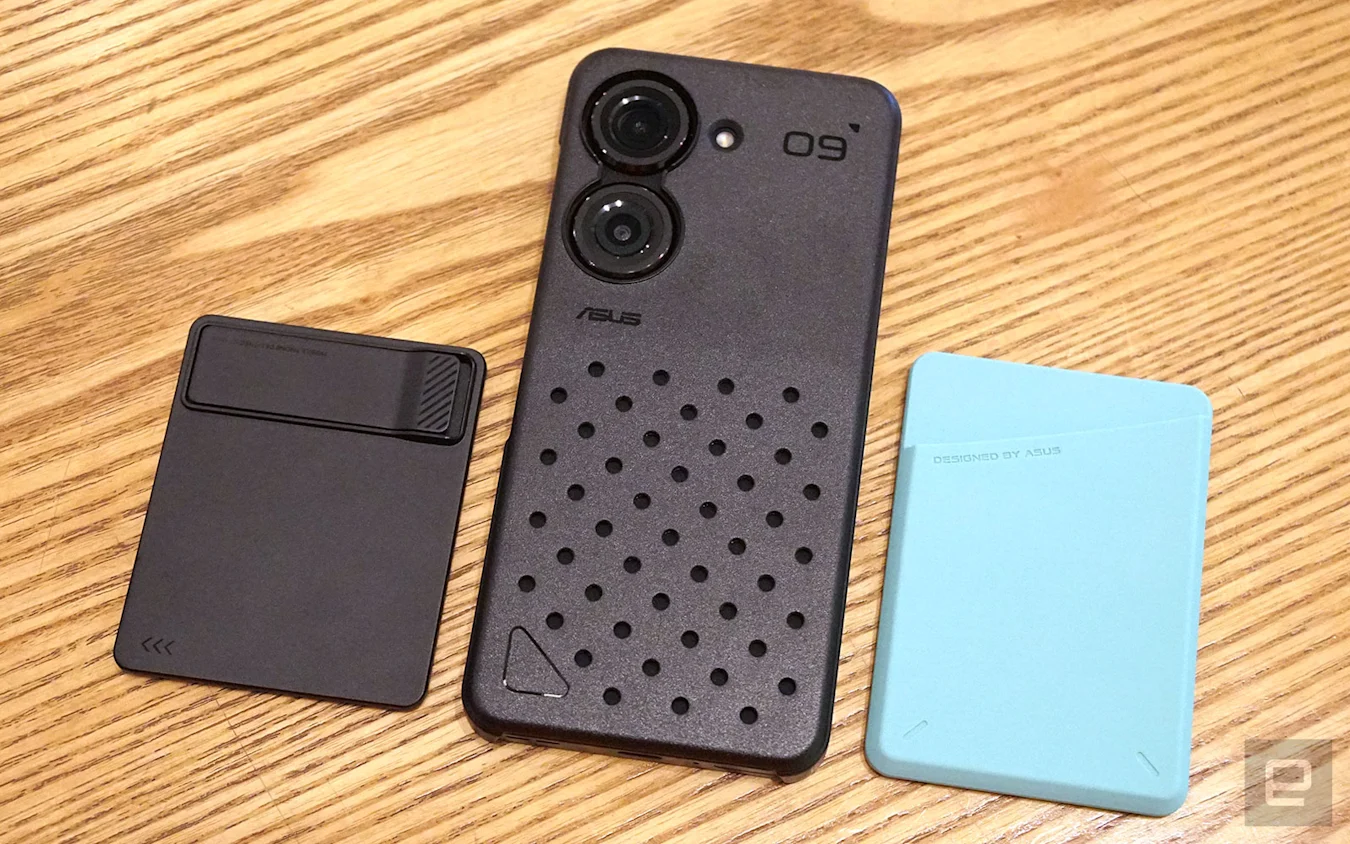With the launch of its latest smartphone today, ASUS finally bids farewell to its quirky “Flip Camera” feature, but it still believes that there’s a market for compact flagships. The new Zenfone 9 only comes in one size, which has kept the same 5.9-inch screen and 169-gram weight as its predecessor, but packing a bigger processor, main camera, battery and thermal material.
The biggest upgrades are, as you’d expect, the processor and camera. Much like its very recent ROG Phone 6 series, the Zenfone 9 is powered by Qualcomm’s Snapdragon 8+ Gen 1, which is a notable jump from the Zenfone 8’s Snapdragon 888. As for the camera, this time ASUS opted for a much larger 50-megapixel Sony IMX766 sensor, which offers a pixel size of 1um instead of just 0.8um on the older IMX686.
Richard Lai/Tech Reader
The icing on the cake here is the new 6-axis hybrid gimbal stabilizer, which can apparently make corrections at up to plus/minus 3 degrees with no optical deteriorations. This should help capture steady stills and clips — the latter at up to 8K resolution. On a related note, there are only two microphones on the Zenfone 9, as ASUS has nixed the audio focus feature in video recording, hence the lack of a rear-facing mic.
Another significant change here is the overall design. With the return of flat edges (thanks to the iPhone 12), the Zenfone 9 is able to accommodate bigger internal parts, hence the larger 4,300mAh battery and more thermal material (as well as two big “eyes” instead of one boring camera island on the back). Said battery works with ASUS’ 30W “HyperCharge” tech, which the company claims is “the most powerful charger of any phone below 6 inches.” The phone also swapped out the metallic back with a new plastic material to not only reduce weight, but to also add a high-grip, anti-fingerprint coating. This comes in four colors: “midnight black,” “starry blue,” “sunset red” and “moonlight white” (which is more of a light beige).

Richard Lai/Tech Reader
Unlike its recent phones, ASUS ditched the usual in-display fingerprint reader in favor of a capacitive sensor on the power button, dubbed “ZenTouch.” This smart key allows for instant toggling of any assigned app with a double click, as this unlocks your phone at the same time. By default, you can also slide down this button to pull down the notification tray for a quick peek, and then slide up to hide the tray. Alternatively, you can set this to refresh webpages, jump to home or end of pages, or skip songs in music players. This is all part of ASUS’ grand plan to optimize the one-handed operation on its latest phone.
Appearance and software changes (ZenUI 9 based on Android 12) aside, you’ll find the rest of the Zenfone 9 rather familiar. It’s exactly the same ultra-wide camera and selfie camera (both 12 megapixels) as before, with the latter punched out in the top-left corner of the 2,400 x 1,080 120Hz AMOLED screen. Both speakers are once again tuned by audio specialist, Dirac, which already delivered impressive results on ASUS’ other recent phones; and you still have the option to plug in wired headphones via the 3.5mm jack. As for durability, there’s still an IP68 rating for resistance against dust and liquids.

ASUS
To make the most out of this beefed-up camera stabilization, ASUS will offer a “Smart Backpack Mount” which lets you clip the Zenfone 9 onto your backpack’s shoulder strap. With the main camera facing forward, you can wear the phone as an action cam. You can also single-handedly pop your phone in or out of its magnetic holder with ease, and with its retractable safety cord attached.
Another accessory option from ASUS is the “Connex” modular case system. Rather than using magnets like Apple’s MagSafe design, this protection case has multiple built-in holes that let you snap either a kickstand or a silicone cardholder onto the back of your Zenfone 9. You can also assign an app — YouTube, by default — to auto-launch whenever the kickstand is flipped out.

Richard Lai/Tech Reader
The Zenfone 9 will be coming to the US, with prices starting from $699 (8GB RAM with 128GB storage), though actual availability will be announced at a later date, so stay tuned.
As to whether the “Flip Camera” will ever make a comeback, ASUS said it’ll revisit this idea only if the tech makes it feasible. The company shared that globally, the two Zenfone 8 sizes actually sold similar numbers, with consumers in Japan and Europe preferring the smaller Zenfone 8. So for now, there will be no more Zenfone “Flip” variants in the foreseeable future.
All products recommended by Tech Reader are selected by our editorial team, independent of our parent company. Some of our stories include affiliate links. If you buy something through one of these links, we may earn an affiliate commission.
